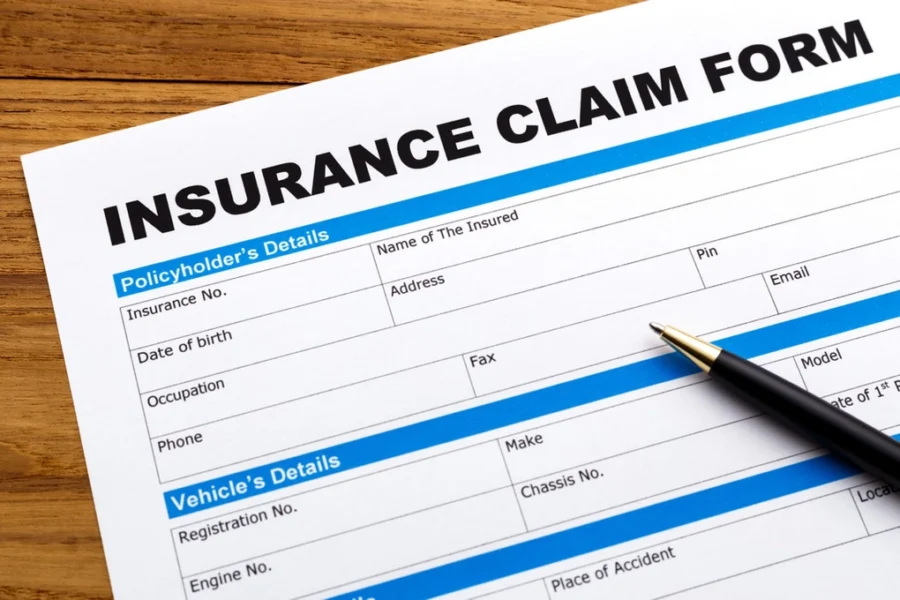Renters insurance is one of those pesky expenses that seems like it can safely slip through the cracks—until disaster strikes and you wish you had those key coverages in place. With strategic insurance, a handful of well-placed policies can create immense peace of mind in our increasingly volatile world and rapidly rising rental costs. However, many renters still have critical blindspots around why coverage matters, what it offers, its affordability, and managing claims processes. This article will explore best practices around renters insurance so you can secure robust, tailored protections for your unique risks and assets.

Coverages Under a Renters Insurance Policy
Core Coverages Included in Renters Insurance
Most renter’s insurance packages contain three core forms of protection: coverage for personal possessions like furniture and electronics in the event of damage, liability insurance if someone is injured in your rental, and additional living expenses if your unit is unlivable due to a covered incident. For example, a pipe could burst and flood your apartment, destroying televisions, book collections, and cherished mementos while simultaneously displacing you into a hotel for weeks during repairs. Robust renters insurance would help fund furniture replacements, electronics purchases, hotel fees, and restaurant costs while you navigate this turbulent stretch.
Additional Options Coverages Worth Exploring
Renters can also add supplemental covers based on their unique risks, like insuring specialty collections, golf clubs, musical instruments, or high-end jewelry pieces. Each item added, however, layers on premium costs. Evaluating if cheaper options like safe deposit boxes make more financial sense for securing certain assets is wise. Additionally, while most policies include baseline cover for liability scenarios involving injury to others, adding higher liability limits can ease concerns around, for example, someone suing if injured falling down your stairs. But realistically assessing if such expansions fill genuine vs. irrational worst-case-scenario anxieties allows smarter balancing around optional add-on costs.
Items Excluded from Typical Renters Insurance Policies
However, standard renter’s insurance packages do carve out specific exclusions where obtaining coverage would markedly spike costs due to high risks of losses. For example, damage tied to floods, earthquakes, long-term water seepage, mold, and asbestos are often excluded from basic renters’ policies. Additionally, you cannot rely on standard renters insurance to cover automobile accidents, reckless activities deemed extremely risky like street racing, or gradually accumulating wear-and-tear damage. Awareness of these costly self-insured gaps allows renters to weigh separate flood insurance in flood zones, maintain adequate car insurance, and steer clear of criminal legal risks not under the liability umbrella.
Factors That Shape Cost of Coverage
Variables Impacting Your Renters Insurance Premiums
In calculating your personalized premium, insurers weigh variables like the coverage limit amounts you elect, your selected deductibles if losses occur, the value of your insured personal assets, your credit score, your claims history, your dwelling type, and your geographic location, assessing area risks. Los Angeles renters, for example, face higher premiums than Boise residents, given California’s volatility. Requesting $100,000 in personal property coverage and $500,000 in total liability insurance also spikes costs higher than minimal coverage selections. Tailoring these inputs to your authentic needs gives affordability power. Additionally, bundling renters with auto insurance can yield multi-policy discounts.
Discounts You May Qualify for as a Renter
Many insurers offer renters policy discounts that reward smart financial behaviors, like maintaining short and long-term stability via good credit scores, paying premiums annually rather than month-to-month, installing protective devices like smoke detectors and deadbolts, taking health and safety precautions like first aid training, and keeping properties hazard-free by addressing trip risks. Additionally, some companies offer affinity discounts tied to employers, schools, and alumni associations. Exploring these reductions through a bespoke quote process is wise, as insurers calculate discounts differently.
Strategies If You Are Struggling With High Premiums
If all tailored efforts still yield difficult premiums, assessing trade-offs around raising deductibles, narrowing liability limits if other assets buffer risk, dropping optional covers, and recalibrating coverage caps to essentials open added avenues. Being over-insured distorts affordability. Also, run quotes through an independent insurance broker, accessing multiple carrier options as pricing varies. As a last resort, statutorily required minimum liability insurance through state plans provides basic protections, albeit with gaps.

Managing Claims Under Your Renters Policy
Steps to Take Immediately After an Insured Loss Event
If tragedy strikes your rental, triggering potential insurance claims, document damage thoroughly via photographs and video immediately as proof for adjusters tied to causes like fire, flooding, theft, and appliance damage—list known stolen or damaged items comprehensively while details remain fresh. Contact your landlord and renter’s insurance company regarding property damages to file a claim quickly, as most policies impose strict notification timeline requirements. Keep damaged items unless told disposal is acceptable by adjusters needing inspection. If possible, mitigate any ongoing damage risks by cleaning water or securing doors. Save repair-related receipts and track additional living expense costs, expecting reimbursement.
What to Do If Your Claim Gets Denied
Insurers can incorrectly deny filed claims if evidence gets misinterpreted, facts are relayed poorly, or adjusters need to understand contract provisions. Rather than automatically accepting rejection, have your policy handy to review what damage types and limits were agreed upon, gather additional proof strengthening your documentation around causal damage events, inquire on any needed steps reflecting contract obligations you may have missed, and revisit with concrete specifics on coverages owed. Solution-focused with an open negotiating stance, even in disagreement, tends to yield greater traction. You can also request appeals to managerial staff if frontline denial disputes fail.
Hiring a Public Adjuster If a Claim Dispute Requires Escalation
Lengthy complex renters insurance claim disputes causing delays in receiving rightfully owed coverage reimbursements may benefit from escalating to specialized public adjusters, who act as policyholder advocates versed in relevant state insurance regulations and contracted damage technicalities. For 10-20% of your ultimate claim settlement, they interface as equals with your insurer, fighting denials, guiding documents and inventory fine-tuning, and determining settlement amounts linking directly to the policy without conflict-of-interest allegiances compromising their area expertise leverage. Weighing their cut against potential unclaimed coverage losses clarifies the value.
Top Myths That Create Renter Confusion & Risk Exposure
Many renters pick up false assumptions about insurance protections when reviewing policies and managing claims. They are learning to spot the signs of myth in action shields against unnecessary coverage gaps or response missteps after loss events. Common myths, for example, suggest renters already hold protections via landlords or home policies of relatives, that insuring low-value furniture fails to warrant costs, liability risks remain minimal if you lack assets, and filing small claims avoids premium hikes or cancellation risk. In reality, most landlords carry no renter protections or exclude tenant assets; shockingly swift replacement costs apply after mass item losses; injury lawsuits pose unlimited personal financial threats absent insurance buffers, and some insurers ruthlessly cancel policies after just one claim.
Insuring Personal vs. Landlord Property
Renters must also grasp that standard policies cover damage or theft impacting tenant personal property kept inside rental homes, not structural components or appliances owned by landlords. Rarely does landlord insurance trickle down unless explicitly stated in leases. So, renter insurance won’t aid in repairing broken washing machines, damaged roofs, or burst apartment complex pipes. But confirm landlord policy exclusions before assuming responsibilities lie with you as gaps happen. Knowledge reduces claim conflicts over broken property origins, muddying who pays — the renter for their electronics felled by pipe flooding, for example, vs the landlord for repairs enabling the damage.
Roommate Policies Need Special Care
Additionally, renters often need to pay more attention to insurance rights around roommates, assuming 100% shared coverage intact or fully separate policies are required. In reality, baseline joint policies pose no issue covering losses collectively while occupying the same dwelling long-term. But exclusions apply once roommates vacate the property, especially regarding theft or liability events tied to now ex-roommates lacking continuous policyholder status. Also, get named policyholder status added once committed for continuity. Plus, determine if new units still enable joint or individual policies if splitting households.
Let’s summarize Renters Insurance Policy
Renters must halt assumptions around built-in coverage protections tied to landlords, family homeowners, or roommates buffering rental risks. By itemizing assets, tailoring robust renters insurance policy limits reflecting genuine risks like floods and liability court judgments, locking in premium affordability via discounts and deductible choices, understanding claim processes when disaster strikes, and clarifying myths around landlord vs. personal property or former roommate coverage, renters gain substantial power over navigating risks with confidence rather than uncertainty in our increasingly financially precarious times. Use this comprehensive overview of renters insurance dynamics as a reference blueprint when making coverage decisions and asserting policyholder protections after loss events during temporary or lifelong renting tenures. Questions or concerns? Reach out, and let’s walk through specifics.
Disclaimers: The information in this article is intended for general informational purposes only and should not be construed as professional advice. While we strive to provide accurate information, there may be occasional errors or outdated content. Readers are encouraged to confirm details and seek professional guidance for their specific situations. Additionally, this article references general insurance practices, and coverage details may vary depending on individual policies and providers. It is recommended to carefully review your insurance policy or consult an insurance professional for personalized advice.
What is protected by way of renters insurance?
Renters insurance commonly consists of 3 most important coverages:
Personal assets coverage: This reimburses you for the fee of your belongings if they are broken or destroyed by means of a covered occasion, which includes fire, theft, or vandalism.
Liability insurance protects you if someone is injured in your apartment unit and sues you for damages.
Additional residing fees: This covers the cost of temporary housing and other charges if your condominium unit is uninhabitable because of an included event.
How much does renters’ coverage value?
The cost of renters insurance varies depending on several factors, together with:
-The cost of your assets
-Your deductible (the quantity you pay out of pocket earlier than your coverage kicks in)
-Your region
-Your claims history
-Your credit score
However, renters’ coverage is usually less expensive, frequently costing much less than a cup of espresso daily.
Do I want renters insurance if my landlord has coverage?
No, your landlord’s insurance policy only covers the construction, now not your non-public belongings. Even if your landlord should carry legal responsibility insurance, it may not protect you from proceedings if someone is injured in your unit.
What are some commonplace myths about renter’s coverage?
There are many myths surrounding renters coverage, consisting of:
Myth: Renters insurance is high-priced. (Reality: Renters coverage is frequently relatively low priced.)
Myth: My landlord’s coverage covers my property. (Reality: Your landlord’s coverage simplest covers the construction itself, no longer your assets.)
Myth: Filing a small claim will improve my prices or cancel me. (Reality: Insurers can not boost quotes or cancel your coverage based on a single, small claim.)
What do need to I do if I even have a declaration?
If you revel in a loss that is covered via your renter’s insurance, make certain to:
-Contact your insurance enterprise as quickly as possible.
-Document the damage with pictures and motion pictures.
-File a police report if necessary.
-Keep receipts for any upkeep or replacements you are making.

